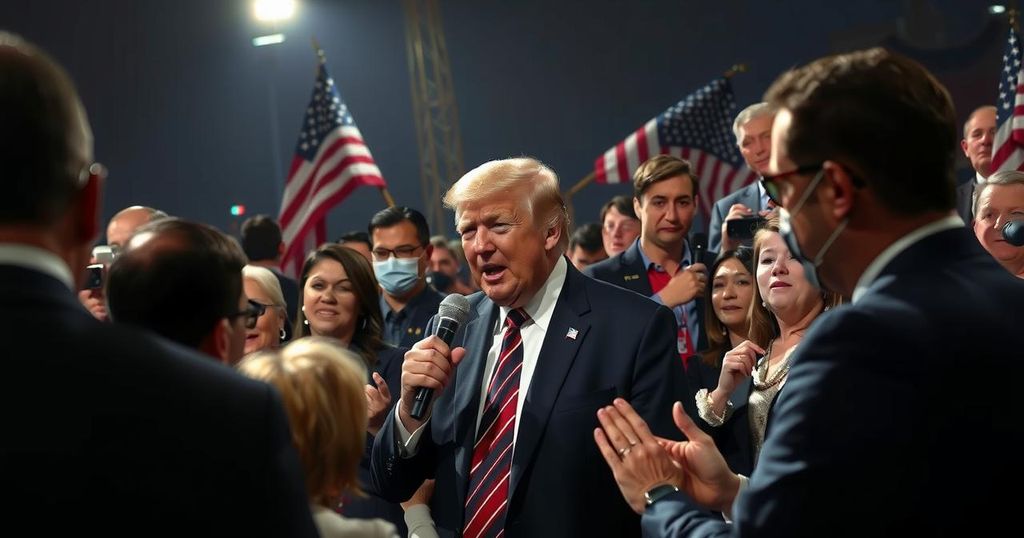Trump Hosts Alleged Scandal-Plagued German Politician on Election Day

On Election Day, President-elect Donald Trump met Phillipp-Anders Rau, a convicted German politician associated with the far-right AfD party. Rau’s controversial past includes theft and alleged involvement in adult films. Trump’s interactions with such figures reflect the growing ties between far-right movements in the U.S. and Europe, raising concerns about the implications for political discourse and extremism.
On Election Day, President-elect Donald Trump welcomed a controversial German politician, Phillipp-Anders Rau, at his Mar-a-Lago resort. Rau, a Bundestag candidate from the far-right Alternative für Deutschland (AfD) party, has a criminal record, including theft and alleged participation in adult films—claims he denies. This incident is emblematic of the growing alliance between far-right factions in the United States and Europe, particularly following Trump’s electoral success which has galvanized similar movements worldwide.
Rau, who has previously affirmed his intent to take the AfD towards mainstream acceptance in Germany, shared images of his encounter with Trump on social media, expressing hope for a renewed national agenda akin to the AfD’s objectives. The AfD, categorized as a suspected extremist group by Germany’s intelligence services, is noted for its anti-immigrant stance and connections to radical elements. Under Rau’s involvement, the AfD has seen significant support, positioning itself as a major player in upcoming elections.
The unfolding events revealed not only the presence of extreme viewpoints within political dialogues but also pointed to a burgeoning interplay between right-wing influencers across borders. A known social media provocateur, Leonard Jäger, was also part of the group that interacted with Trump, reinforcing a narrative of collaboration among far-right figures.
Jäger’s connection to conspiracy theories, including anti-feminist rhetoric and support for extremist ideology, raises questions regarding the implications of such alliances. The proceedings suggest that Trump’s appeal continues to resonate significantly within these factions, amplifying their voices in a broader social context vibrant with distrust against established political norms.
Despite Rau’s troubled past and current bankruptcy proceedings, he secured access to Trump through formal invitations. A representative from the Secret Service stated that all individuals entering Mar-a-Lago were screened, although details regarding their invites remained undisclosed. This indicates procedural leniency for individuals aligned with similar ideologies, thereby legitimizing their associations with Trump and reinforcing their political aspirations.
In summary, this interaction encapsulates a moment of converging interests between Trump and far-right factions, highlighting a complex narrative of political influence and extremist engagement. Jäger’s endeavors to gain media credentials for further access illustrate an organized effort to solidify pro-Trump sentiments within the far-right community, perpetuating a cycle of ideological exchange.
The article explores the implications of Donald Trump’s interactions with members of far-right groups, particularly during a significant political event like Election Day. It introduces Phillipp-Anders Rau, a candidate for the Alternative für Deutschland (AfD) party, linking his controversial background with broader patterns of far-right mobilization in Europe in response to populist sentiments. This context provides insight into the nature of alliances forming across political spectrums and national borders, particularly in light of Trump’s influence on radical political movements.
The encounter between Trump and far-right figures such as Rau and Jäger underscores a stark intertwining of ideologies that may have significant ramifications for both American and European politics. As these alliances solidify, issues surrounding the normalization of extremist views and their integration into mainstream political discourse warrant careful consideration, especially as upcoming elections may further shape these dynamics.
Original Source: www.thedailybeast.com








